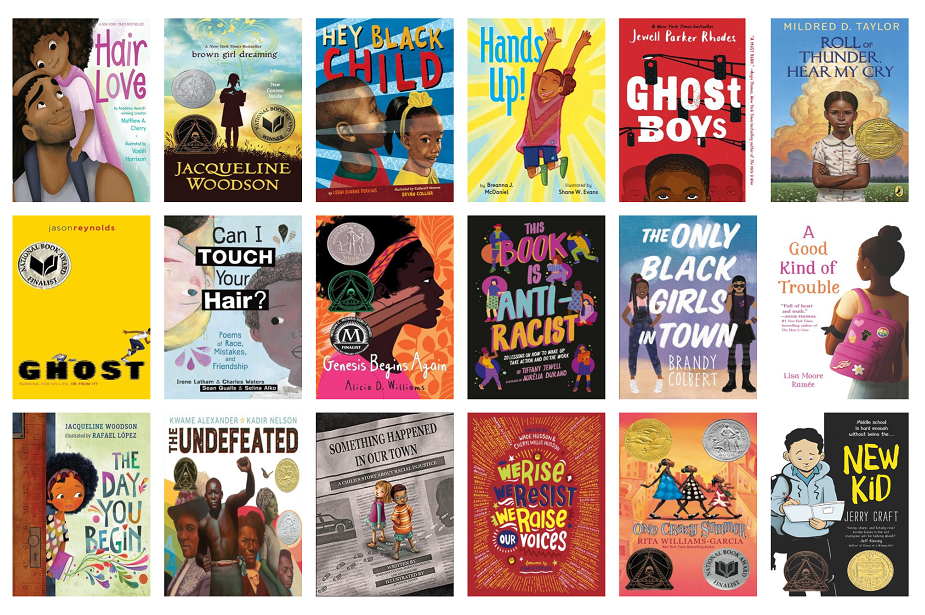Inspiring Lifelong Readers
This year I had the privilege of being the teacher supervisor for our middle school's Anti-Racist Leadership Club; a group of motivated students who saw a need to come together to promote an anti-racist dialogue within our school. Their reason for starting this club was multifold, but primarily, it came out of a racist incident that occured rather publically in our school. Students wanted to show that they would not stand for this within the school and also wanted to share their own experiences of racism as BIPOC youth.
I took over the supervision of this club part way through the year and quickly realised that, despite being a very multi-cultural school, cultural identity was something that students felt was overlooked. In contrast to the student body, the teaching staff is overwhelmingly white. Truthfully, this is the case in the whole district. What this means is that, whether we like it or not, our school is inherently biased and must make extra efforts to look at how our biases come into how and what we teach, how our system is set up, and, of course, what resources we have to offer.
One of the comments that students made after I took over was that there were not enough books in the library that represented them. I am not the current TL at our school, and I know the TL does make efforts to be inclusive in her purchases, but I do feel the students had a point. Not just about library books, but also about curriculum. If we want to foster a strong culture of reading within our school, our students need to see themselves in the resouces we use.
The following Ted Talk by Alvin Irby talks about his experience with inspiring students of colour to be lifelong readers.
Additionally, in my grade 8 classes (I teach three grade 8 classes this year) we have a number students who identify within the LGBTQ+ community and also need to see themselves in what they read. I have noticed that, since coming out this year, at least one of my students has been devouring any YA book she can get her hands on with an LGBTQ+ theme. As a result, her friends have also been reading these books.
Another population of students who are significantly under-represented are students with physical or neurological differences. I have students with ADHD and/or Autism (for example) who would find it very comforting to see themselves in the books they are asked to read. Reading, for some of these students especially, can be a challenge, and finding engaging books where they are the protagonist, would only serve to help strengthen self-confidence and willingness to read, and promote understanding and allyship.
While I don't have all of the answers, and I certainly have not mentioned the numerous contests and events a library can put on to promote reading, I simply feel that having a range of books that allow every student in the school to identify with the protagonists and their experiences are at the base of fostering a love of reading.
The following links are by no means exhaustive lists of books recommended for diverse audiences.
Anti-Racist Books for Middle Schoolers
Overdrive Blog: Books about Race
LGBTQ Books for Middle Schoolers
Books with Neurodiverse Characters

I appreciate the approach you took with this post, Your personal, reflective narrative engages the reader. The booklist you share are an excellent takeaway for your reader.
ReplyDelete